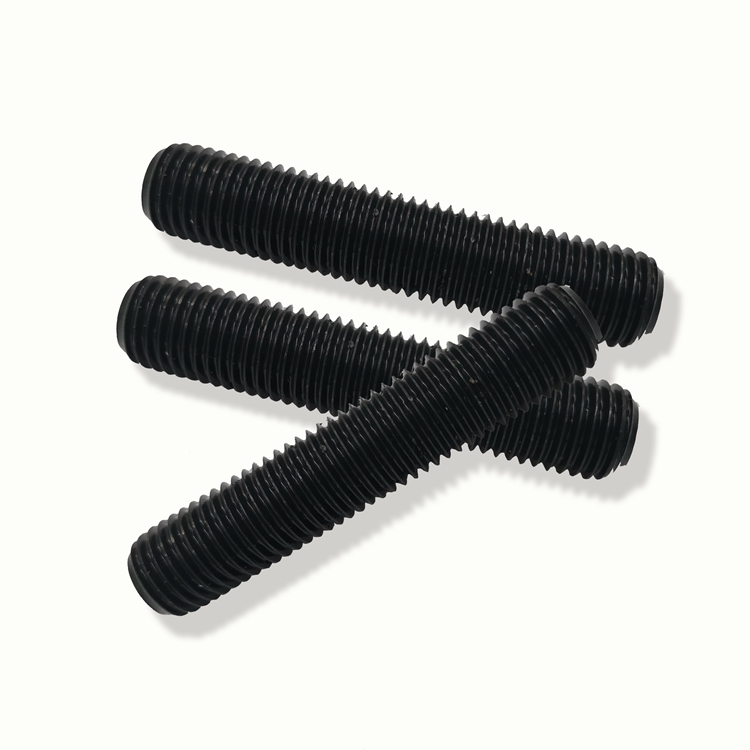Purchase 10mm Stud Bolts for Your Construction and Repair Needs Today
Nov . 27, 2024 04:23 Back to list
Purchase 10mm Stud Bolts for Your Construction and Repair Needs Today
The Importance of Buying 10mm Stud Bolts A Comprehensive Guide
When it comes to construction, engineering, and various DIY projects, the importance of selecting the right fasteners cannot be overstated. One item that frequently comes up in discussions about reliable fastening solutions is the 10mm stud bolt. This indispensable component plays a vital role in creating sturdy connections between different parts of structures, machinery, and equipment. In this article, we will delve into the key aspects of buying 10mm stud bolts, exploring their features, applications, and the factors to consider when making a purchase.
Understanding 10mm Stud Bolts
A stud bolt is a cylindrical rod with threads on both ends, designed to be inserted into a nut or a tapped hole. The 10mm designation refers to the diameter of the bolt, which is crucial for determining its load-bearing capacity and compatibility with various applications. Stud bolts are usually made from durable materials such as stainless steel or carbon steel, ensuring they can withstand significant stress and environmental factors.
Applications of 10mm Stud Bolts
10mm stud bolts are used across a wide variety of industries due to their versatility and strength
. Some common applications include1. Construction In building applications, 10mm stud bolts are often utilized to secure structural elements like beams, columns, and trusses. 2. Machinery These bolts are essential in assembling various machinery components, providing a strong and reliable fastening solution that can endure high levels of vibration and stress.
3. Automotive In the automotive sector, 10mm stud bolts may be used in engine mounts, suspension components, and other critical areas where strength and reliability are paramount.
4. Marine applications Due to their resistance to rust and corrosion, particularly those made of stainless steel, 10mm stud bolts are ideal for marine environments.
buy 10mm stud bolt

Factors to Consider When Buying
When it comes to purchasing 10mm stud bolts, it’s important to consider several factors to ensure you choose the right product for your needs
1. Material The material of the stud bolt affects its strength, corrosion resistance, and overall durability. Stainless steel 10mm bolts are excellent for environments prone to rust, while carbon steel bolts may provide better tensile strength in dry conditions.
2. Thread Type Different applications may require different thread types, such as coarse or fine threads. Coarse threads are generally easier to install and are better suited for quick assembly, while fine threads can provide greater tensile strength.
3. Length The length of the stud bolt is crucial for ensuring it fits the application correctly. Measuring the required length and accounting for the thickness of the materials you will be fastening is essential to avoid issues during installation.
4. Load Rating Understanding the load rating of the bolt is vital. Ensure that the selected stud bolt can handle the anticipated load either through tensile strength or shear strength, depending on how the bolt will be used in your application.
5. Coatings and Finishes Some stud bolts come coated with materials such as zinc or nylon, which can enhance corrosion resistance and reduce friction during installation. Determine if such coatings are necessary for your specific application.
Conclusion
In summary, purchasing 10mm stud bolts is a critical consideration for anyone involved in construction, engineering, or DIY projects. By understanding their applications, the factors that influence performance, and maintaining a focus on quality, you can make informed decisions that will contribute to the success and safety of your projects. Whether you are a professional builder or a weekend DIYer, investing in reliable 10mm stud bolts is a step toward achieving durability and robustness in your work. Always consult with a reliable supplier to ensure that you are getting high-quality fasteners suited specifically for your needs.
Latest news
-
High-Quality Panel Stud Bolt Reliable Panel Stud Bolt Factory & Suppliers
NewsJul.08,2025
-
High-Precision Fine Thread Locknuts Manufacturer & Supplier Custom Solutions
NewsJul.08,2025
-
PH Imperial Stud Bolt – High Strength Fasteners from Leading Supplier & Factory
NewsJul.07,2025
-
High-Quality Allen Wrench Bolts Leading Factory, Company & Suppliers
NewsJul.07,2025
-
Wholesale Ball Stud Bolt - High Quality Supplier & Factory Price Reliable Wholesale Ball Stud Bolt Company
NewsJul.06,2025
-
High-Strength Alloy Bolts Manufacturer & Supplier Quality Alloy Fasteners Factory
NewsJul.06,2025
